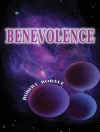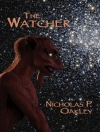In ‚The Angel, ‚ Guy Thorne crafts a poignant narrative steeped in early 20th-century spiritualism and the exploration of love transcending mortal boundaries. This novel artfully intertwines elements of gothic fiction with a profound examination of moral dilemmas, presenting readers with a gripping tale that revolves around themes of redemption, the afterlife, and the eternal bond between souls. Thorne’s lyrical prose and vivid imagery evoke a rich atmosphere that deepens the reader’s engagement with the complex characters and their emotional landscapes, thereby reflecting the literary context of his time, which was rife with inquiries into faith and the supernatural. Guy Thorne, an English writer and journalist, was deeply influenced by the social upheavals of his era, including the Great War and the burgeoning interest in spiritualism. His experiences as a journalist often led him to question the nature of existence and the mysteries surrounding life and death. This inquiry is palpably felt in ‚The Angel, ‚ as Thorne navigates through the fragility of human relationships and the possibility of existence beyond physical demise, offering insights into his philosophical ponderings that resonate with contemporary readers. For those seeking a narrative that intertwines love, loss, and the metaphysical, ‚The Angel‘ is a compelling read. Thorne’s mastery of language and ability to evoke a haunting yet beautiful exploration of the human condition make this novel a worthy addition to the library of any literary enthusiast. Whether one is drawn to the themes of spirituality, love, or moral contemplation, ‚The Angel‘ promises an enriching experience.
Über den Autor
Guy Thorne is the pseudonym of Cyril Arthur Edward Ranger Gull (1876 – 1923), a prolific English novelist and journalist who gained popularity with his works in the early 20th century. Thorne’s writing tends to fall under the genre of adventure fiction, although he has dabbled with various themes and settings throughout his career. ‚The Angel‘ stands as one of his contributions to the romantic adventure sphere, exemplifying his capacity to weave intrigue with spirited characterization. Thorne’s literary style is often reflective of the era’s predilections, including explorations of morality, sensationalism, and the duality of human nature. Despite his numerous works, Thorne has not attained the lasting acclaim of some of his contemporaries, possibly due to the sensational and mass-market nature of many of his novels, a trait less celebrated in literary criticism. However, his works do provide an interesting snapshot of the period’s popular culture and as such serve as valuable sources for socio-cultural historians desiring to explore the period’s public appetite for fiction. His contribution to the field of literature, though not widely recognized in academic circles, continues to be appreciated by enthusiasts of historical novels and serialized fiction.












